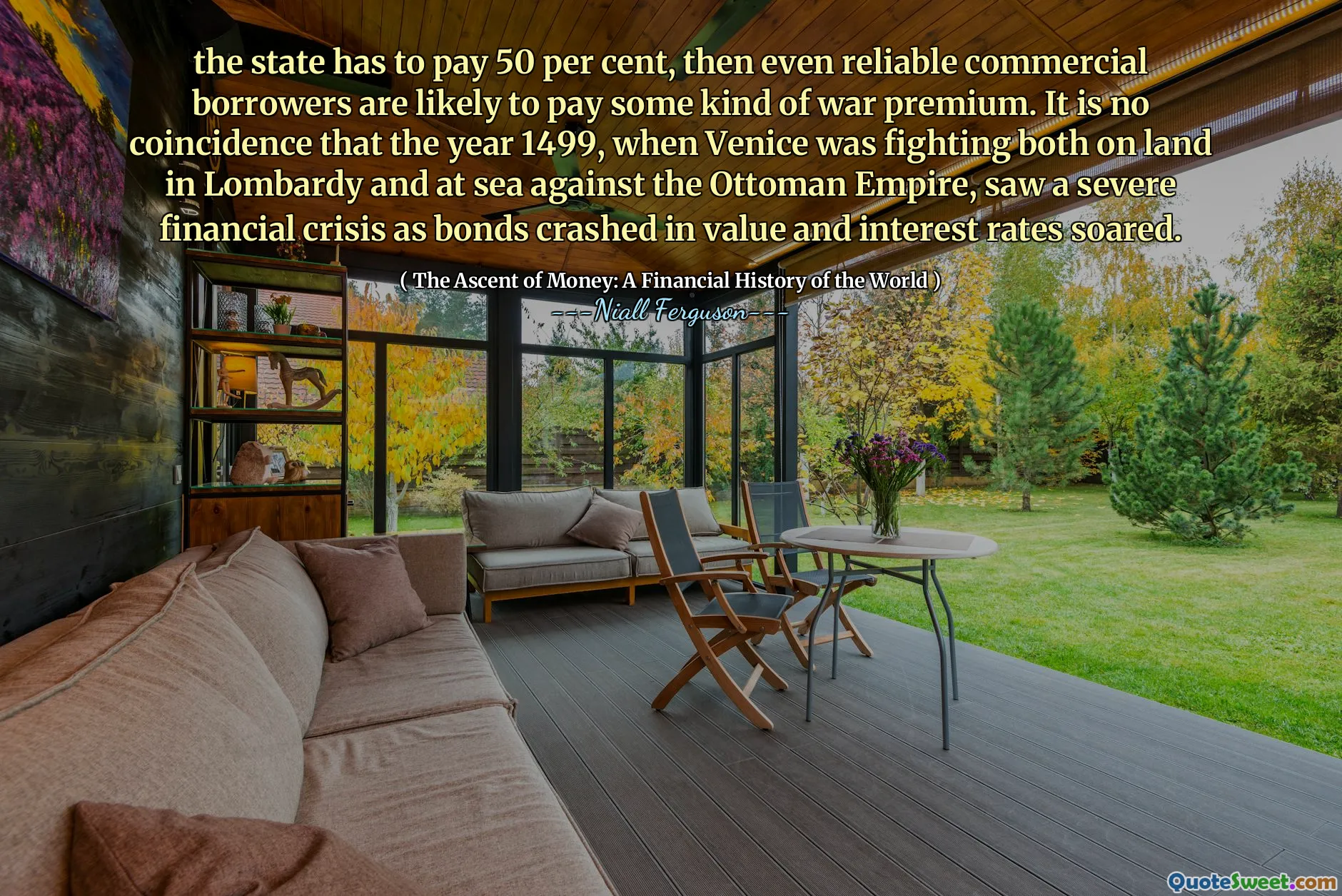
the state has to pay 50 per cent, then even reliable commercial borrowers are likely to pay some kind of war premium. It is no coincidence that the year 1499, when Venice was fighting both on land in Lombardy and at sea against the Ottoman Empire, saw a severe financial crisis as bonds crashed in value and interest rates soared.
Niall Ferguson's book, "The Ascent of Money," delves into historical financial crises, particularly highlighting scenarios where the state intervenes in the economy. He discusses how when the government is required to cover a substantial portion of debt, such as 50 percent, it influences the financial environment. Even stable borrowers often end up facing increased costs, represented as a 'war premium,' which signifies the additional risk associated with borrowing in times of conflict.
Ferguson also references the year 1499, a pivotal moment for Venice, which was engaged in multiple military conflicts. This tumultuous period resulted in a significant financial downturn, characterized by plummeting bond values and soaring interest rates, illustrating the direct correlation between warfare and economic instability. The real-world implications of these historical lessons echo into modern financial systems, underscoring the risks involved in state-driven fiscal policies during times of crisis.











